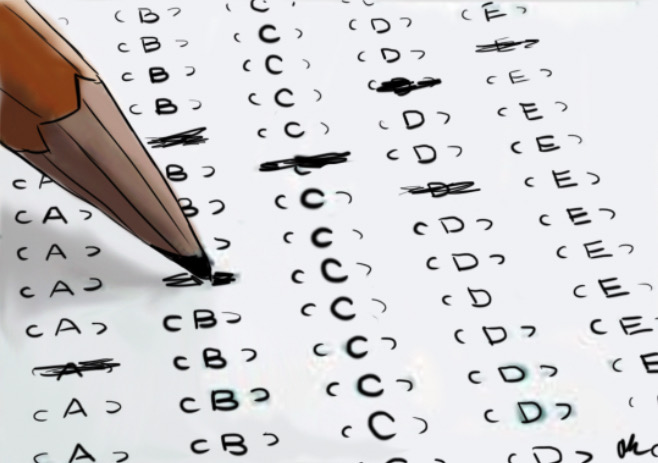Standardized Tests Must Not be Held This School Year
The 2020-2021 school year is proving to be the most difficult, unpredictable year in public education history. Despite this, the Biden administration has decided to move forward with national and state-wide standardized testing across various subject areas. This ruling serves as an injustice to the children of the U.S. public education system in light of all the harsh and jarring changes they have had to endure this school year.
For years, standardized testing across state and borders has served to hold school systems accountable for the education of their students. It has also ensured that students are receiving uniform educational opportunities despite where they live. The New York State Regents exams, for example, are designed to ensure that students living in New York City are receiving the same education in their required classes as students in Buffalo or Lynbrook. These tests have been seen as a positive part of the education system, holding school systems everywhere to a certain academic standard, and thus, providing children in underprivileged communities with equal educational opportunities.
This year, however, that logic can be thrown out the window.
Here is a more reflective example of our current academic situation. Students in Buffalo have been participating in full in-person learning since September. Meanwhile, most students in New York City have not been in a true classroom setting since March 13, 2020. With schools constantly shutting down, technological glitches an everyday occurrence, intense restrictions in the area, financial hardship, and full online learning, the students in New York City are severely academically disadvantaged this year. While any other year the Regents exams are a good measure of the standard of education in public schools across New York state, this year they would no longer serve that purpose.
The true reason why these tests have been pushed to be administered this year is for data analysis. The federal government wants to collect “essential” data to see whether online learning has worked in schools across the country. According to Education Week, an education-focused news outlet, Assistant Secretary of Elementary and Secondary Education Frank Brogan said, “It is urgent to understand the impact of Covid-19 on learning. States would be required to publicly report data by subgroups.” While it may be interesting to see the effects of online learning on K-12 education, the students and teachers already know what the outcome of this report will be.
Online learning is not universally effective. The Director of the Center for Education Policy and Evaluation at George Mason University conducted a study on the effectiveness and impact of online education. His study showed, “Online education has failed to reduce costs and improve outcomes for students. Faculty, academic leaders, the public and employers continue to perceive online degrees less favorably than traditional degrees due to the value and trust in online education.” One of the most important results of this study was the notion that “students in online education, particularly underprepared and disadvantaged students, underperform and on average experience poor outcomes.” Standardized testing will hurt students in lower income school districts this year. Many end-of-year standardized tests are a key component of students’ yearly grades and factor into their GPAs. Underperforming on these tests will lower their GPAs, making it hard for underprivileged students to academically recover.
Teachers know that online learning has taken a toll on education and has proven to not be beneficial for students. The New York State United Teachers (NYSUT) union, which represents over 60,000 members, has called for the cancellation of the New York State Regents in response to the educational effects of the Covid-19 pandemic. “Educators know their students’ needs and how to maximize their potential,” Andy Pallotta, NYS Regents organization’s president, told Newsday. “Giving them the flexibility to help their students achieve their best without administering these tests is the right thing to do this year,” commented Pallotta.
Despite what they may say, students know online learning is not effective long-term. Students at LHS have been fortunate enough to have the opportunity to learn both in-person and online. Emmie Paladino, a junior who takes several honors classes, said, “From my personal experience, online learning is not effective. Students this year have been distracted and lost. Students are faced with so many more obstacles this year. It’s been hard to know what school was like before all of this happened and then log onto school from your confined bedroom.”
When asked if she believed it is fair to administer state-mandated tests this year, Paladino responded, “No. Each individual is at a disadvantage. Academically, many students are in all different places. Fully online, some hybrid, some fully in-person: students across states have not had the same academic opportunities. The playfield is not level. A single standardized test, like a Regents exam, is not an accurate representation of information because not every student has the ability to have equal education opportunities.
Students have struggled enough this year. State-mandated tests should not be administered.

I am a part of the Class of 2022. I am a news online editor and a managing print editor for the features section of Horizon. I am an avid reader and writer.


















